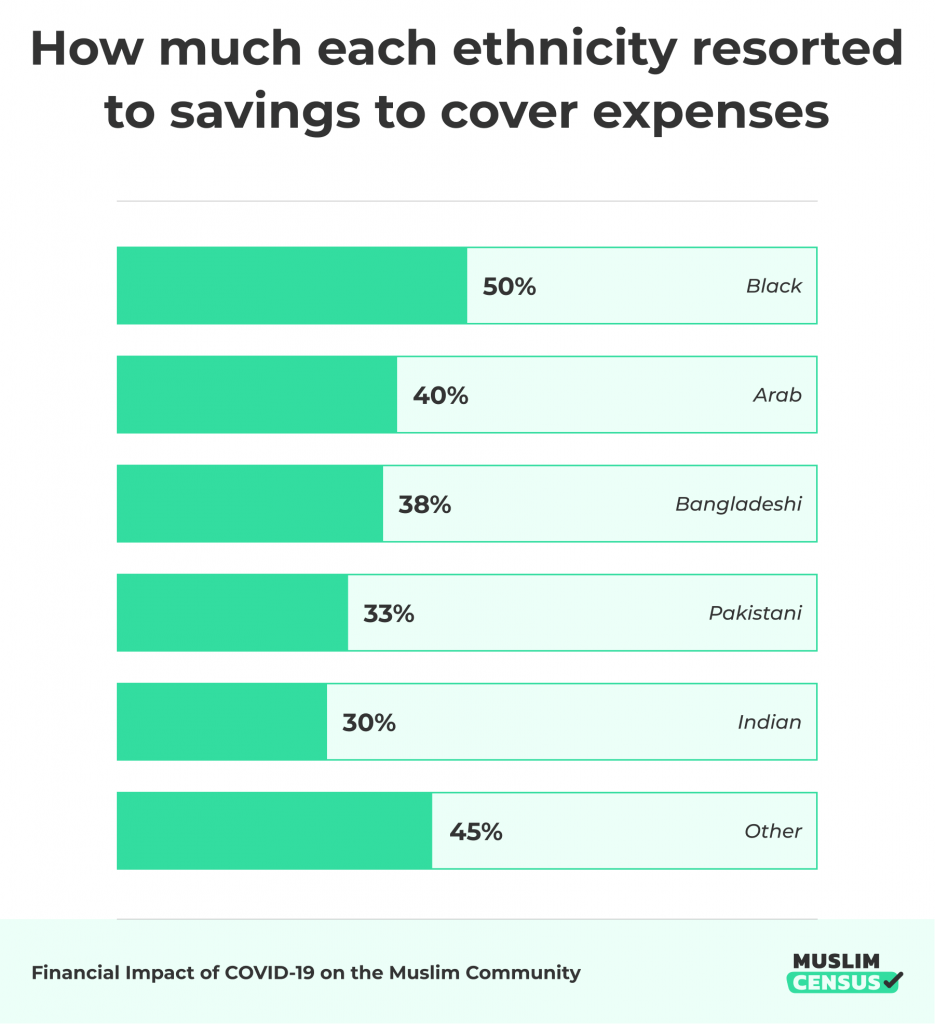Almost 1 in 5 Black Muslims have lost their jobs due to the pandemic
In the last couple of months, our lives have been primarily defined by two global events; The COVID-19 pandemic and the rise of the anti-racist movement, Black Lives Matter. Muslim Census published a report titled ‘The Financial Impact of COVID-19 on the Muslim Community’, where we surveyed 1,000 Muslims living in the UK. We noticed several differences across the demographics of our sample from gender, age, location and ethnicity. Thus, along with it being Black History Month, it is important to highlight the key findings caused by COVID-19 on Black Muslims in the UK.
Of our total sample, 106 Black Muslims were surveyed to explore the impacts of COVID-19 on employment, expenses and poverty. Two of the biggest call outs, that appear to have impacted Black Muslims the most, are job losses and increased pressure in managing expenses.
The pandemic has resulted in one of the sharpest increases in redundancies since the 2008 financial crisis with circa 700,000 jobs lost in the UK so far. Analysing our data, just under 1 in 5 Black Muslims (19.2%) have lost their jobs due to the effects of the pandemic. This is noticeably greater than the overall average within our sample of 14.5%; and significantly greater than the UK national rate of 2.5%. Black people and Black Muslims have experienced a disproportionate impact on unemployment that needs addressing.
Above that, as explained in our full report, 50% of Black Muslims have used their savings to cope with the increased financial strain of the pandemic – greater than any other ethnicity recorded in the study (shown below). Also, compared to the averages of our sample, Black Muslims were 10% more likely to borrow money to cover expenses, 4% more likely to apply for Universal Credit and 2% likelier to consider themselves eligible for zakat.

The question this all prompts is, what can we do about this?
As individuals and a community, it is important to tackle these issue through Muslim-led initiatives such as charity, upskilling programmes regarding employability, personal finance education and finally educating people on the eligibility of zakat. Those leading such initiatives need to make a concerted effort to ensure Black Muslims are included.
More importantly, however, community-led initiatives and organisations that focus on giving Black Muslims a space to voice their concerns are vital. We at Muslim Census provide data and insight into what is happening, yet what the individual communities can detail is why something has occurred and how to fix it. To tackle issues impacting Black Muslims, Black Muslims must be involved. Whether that be through collaborations with existing organisations or the hiring of individuals, these are the methods to effectively support and unite the Ummah in its recovery post COVID-19.
For those that are planning to run initiatives in response to the impact of the pandemic, or those looking to find out more about the experiences of Black Muslims in the UK, we recommend attending the Black Muslim Festival. The festival is a month-long programme of panel discussions and seminars to celebrate identity but also to speak on topics that are relevant to the community. This is a great opportunity to open the doors for awareness and collaboration as the optimal solution for Muslims in the UK is to tackle issues collectively as one Ummah.

